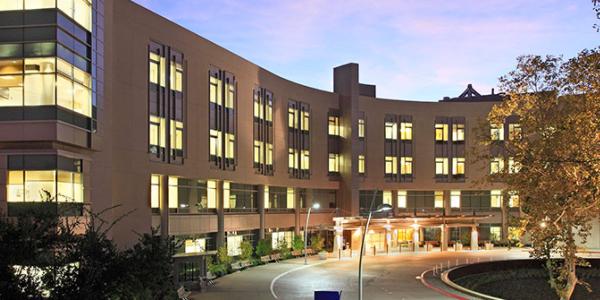


Mountain View, CA - September 26, 2011 - El Camino Hospital's Genomic Medicine Institute (GMI), in collaboration with Genetic Alliance and the National Coalition for Health Professional Education in Genetics (NCHPEG), will launch a groundbreaking genomic education curriculum specifically designed to help physicians who practice there apply the principles of genetics and genomics to everyday practice. The program begins on October 18th.
"We think our program has tremendous potential to improve physicians' ability to prevent, diagnose and treat a wide range of conditions," said Eric Pifer, MD, El Camino Hospital's Chief Medical Officer. "By providing physicians with help in applying genomic medicine in their practices, better outcomes can and will be achieved."
GMI, Genetic Alliance, and NCHPEG recognize the many formidable challenges of incorporating genomics into clinical care. In fact, El Camino Hospital's GMI is one of the first non-academic centers in the nation that is confronting the topic head-on.
"We think there is a critical need for physician education about genomics," said NCHPEG Executive Director Joan Scott. "Despite the fact that the NIH has spent more than $30 billion on the Human Genome project--which has yielded enormous breakthroughs in knowledge about the interplay of genetics and disease--only 10 percent of respondents to a recent AMA survey thought they had enough knowledge to use gene tests in prescribing medicines. Nonetheless, nearly all thought such tests were useful. El Camino Hospital and its collaborative medical staff is exactly the right place for this pioneering program to take place. It will address this knowledge gap and provide a model for physicians across the country to increase their genomics competency."
The curriculum consists of ten two-hour evening workshops to be held at El Camino Hospital, each presented by a subject matter expert paired with an El Camino physician. Four foundational courses focus on the use of genomics in practice, while six additional modules cover its application to a range of specific conditions such as cancer, cardiovascular disease, prenatal and pediatric disease, neurological conditions, and rare and complex diseases.
Each module will include a patient video, featuring one or more individuals sharing their personal experiences with genetic testing and genomics. The videos will be designed to illustrate clinical issues relevant to each subject area, but will also serve to illustrate the human element of hope and expectations for genomics.
"As important as it is to learn the science, we also have to focus on the ultimate beneficiaries, individuals and families," said James O'Leary, chief innovation officer at Genetic Alliance. "Surveys show that patients are increasingly looking to genomics in order to make informed decisions and to find better treatment options. Their doctors need to be able to communicate the risks and benefits of those decisions."
"Physicians hear about the science of genomics at their professional meetings and many great conferences address industry and research groups," said Lynn Dowling, Executive Director of the GMI. "But no one teaches doctors how to take the science home and put it into practice tomorrow. This curriculum will give them all that in a setting that is both familiar and convenient."
A nominal charge for each session includes dinner and course materials and access to regularly-updated on-line resources; physicians are encouraged to complete all ten courses and receive a quantity discount to do so. Both CME credit and a certificate of completion are offered, and physicians who complete the course can be listed on the El Camino website.
About Genetic Alliance
Genetic Alliance improves health through the authentic engagement of communities and individuals. In this, our 25th year, we celebrate innovation on our journey toward novel partnerships, connected consumers, and smart services. For more information, visit http://www.geneticalliance.org.
About the National Coalition for Health Professional Education in Genetics
NCHPEG is an "organization of organizations" committed to a national effort to promote health professional education and access to information about advances in human genetics. NCHPEG members are an interdisciplinary group of leaders from more than 50 diverse health professional organizations, consumer and volunteer groups, government agencies, private industry, managed care organizations, and genetics professional societies.